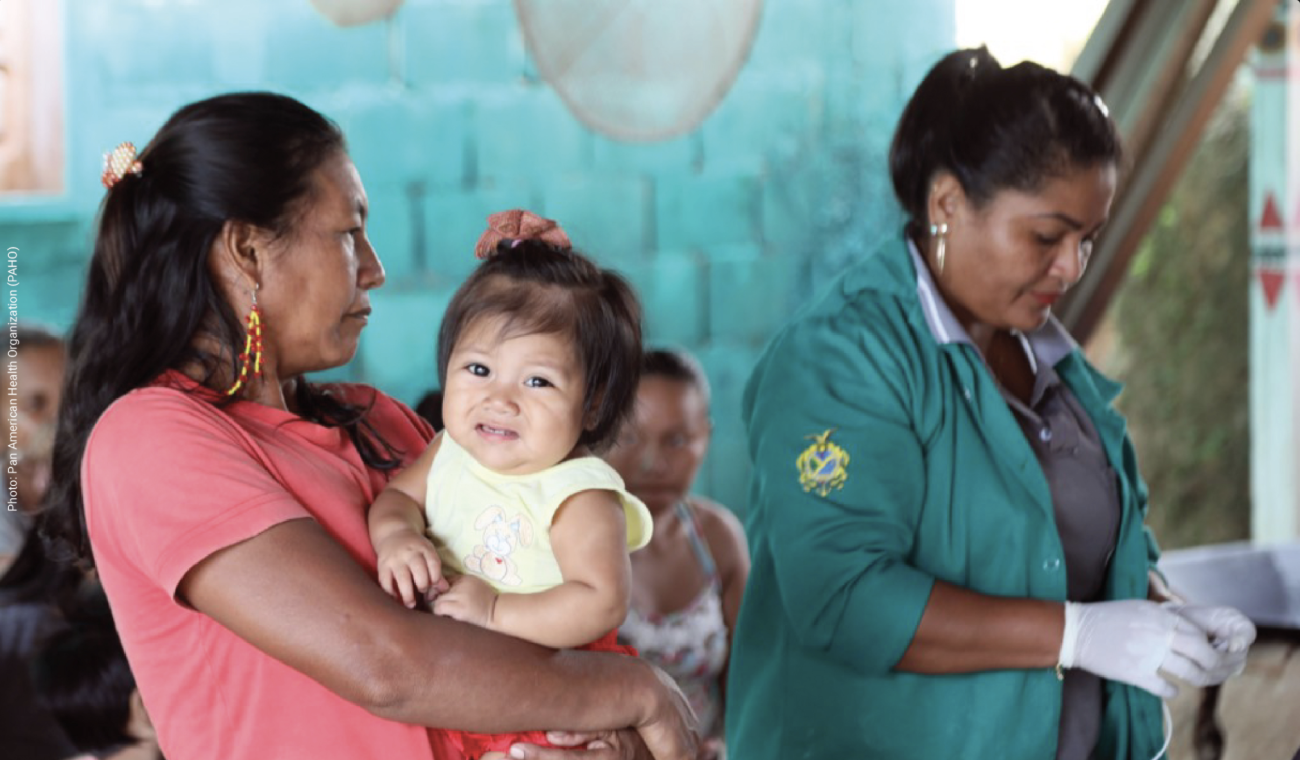Time to Celebrate and to Mourn: In times of COVID-19, marking International Day of the World's Indigenous Peoples

Every year on August 9, the world observes International Day of the World’s Indigenous Peoples.
On this day, we recognize the achievements of the nearly half a billion indigenous people worldwide, in such areas as language, art, medicine, and agriculture.
We also recognize their contributions to the world, not least of all in environmental stewardship. This wisdom is vital as all of us on Earth face the ravages of climate change.
And we recognize their struggles. Sadly, this year those struggles are great and growing.
Consider the case of Latin America and the Caribbean. Countries in the region have enjoyed decades of economic growth and social progress. Now, COVID-19 threatens to reverse that progress.
Throughout the region, no one stands to suffer more from the pandemic and its cascading effects than indigenous peoples.
This is because of the inequalities, stigma, and discrimination that indigenous communities have long endured. People in 520 indigenous ethnic groups throughout Latin America and the Caribbean:
- Have fewer hospitals, doctors, ventilators, and everything they need to survive the crisis.
- Are discriminated against in the labor market.
- Lack access to essential services and social protection programs.
- Are at increased risk of food insecurity due in part to COVID-19 safety measures.
- Are driven from their land by mega-projects in agribusiness, mining, dams, and infrastructure, as well as by illegal logging and mining, all of which leads to greater poverty and disease.
- Face high levels of virus contamination in border areas such as the Gran Chaco and throughout the Amazon.
- Are disproportionately exposed to health problems such as malaria or diarrhea.
In addition, as in any population, COVID is affecting many older adults who are the guardians of ancestral knowledge of indigenous peoples. This raises much concern about the disappearance of the wisdom of the elderly, which so important for the preservation of indigenous cultures.
Indigenous peoples’ representatives from throughout Latin America and the Caribbean have told the United Nations of their near-term and long-term needs with respect to COVID-19.
They urge governments to dialogue with indigenous peoples so as to provide immediate aid that is culturally appropriate, develop culturally appropriate programs to reduce increasing gender-based violence in indigenous communities and stimulate economic recovery that safeguards their territorial rights by respecting their right to previous consult.
The United Nations is listening
In Latin America and the Caribbean, UN country teams in 34 countries and territories have completed plans to help governments address the pandemic and its socio-economic impact. These plans have a special focus on the most vulnerable groups, including indigenous peoples, for example in:
- Argentina, assisting with health services and food for indigenous peoples and other vulnerable groups.
- Bolivia, strengthening distance care and telehealth, especially important for rural areas where many indigenous people live.
- Chile, guaranteeing food supply chains to prevent hunger amongst vulnerable people.
- Ecuador, providing indigenous peoples with support for child development and education to promote social cohesion and community resilience.
- Guatemala, where indigenous communities are amongst the beneficiaries of a cross section of social services.
- Mexico, helping provide information on COVID-19 and government health services in all 68 indigenous languages.
For indigenous peoples in the Amazon, Resident Coordinators and UN agencies are preparing a tri-national humanitarian response program in Brazil, Colombia and Peru: for example to provide personal protection gear to indigenous communities, food assistance in kind or through cash transfers and install hand washing points in strategic places to prevent COVID-19 infection.
Today, let us all celebrate the indigenous peoples of the world.
Let us mourn the losses they have suffered during COVID-19.
Let us recommit to fulfilling the United Nations Declaration on the Rights of Indigenous Peoples.
Let us pledge to ensure their health, their safety, their prosperity, their peace and their rights.
Let us share in their sorrows and joys. For we are all one human family. We forget that at our peril.





































